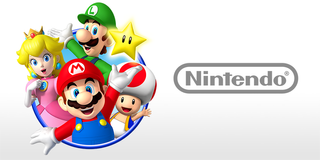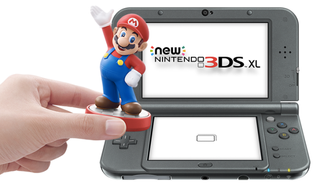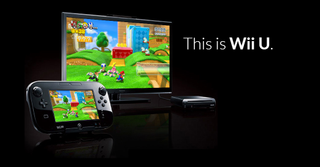New 3DS Handhelds, Wii U Games Fuel Nintendo's Rebound

Yesterday, Nintendo posted its financial report for March 2014 - December 2014, and looking over the results, the report in general is positive, showing a 174,500,000,000 Japanese yen ($1,474,441,240 USD) increase in total assets. It also shows a net income of 59,515,000,000 Japanese yen ($502,873,182 USD) for the time period.
Promising New Handheld
Recently, Nintendo has been busy with the excitement of the newest members of its handheld console line, the New Nintendo 3DS and the New Nintendo 3DS XL. The new handheld launched in Japan on October 11, 2014, and in Australia and New Zealand on November 21, 2014, but it has not yet launched in other parts of the world.
The first three months of sales in Japan added up to 1.75 million units, with just another 80,000 units sold in Australia and New Zealand. Taken together, these figures show a very strong launch of the new systems.
By comparison, the now old Nintendo 3DS that launched back in February 26, 2011 only managed to garner 1.03 million units sold in Japan. However, it's possible that the outgoing handhelds sold by Nintendo at the time, the Nintendo DSi and DSi XL, cannibalized sales a bit.

Looking back at the financial report for the launch of the Nintendo 3DS, sales for Nintendo's outgoing Nintendo DSi and DSi XL reaching a staggering combined total of 2.35 million units. By comparison, the 750,000 units reported for the Nintendo 3DS at the launch of the New Nintendo 3DS and New Nintendo 3DS XL is a much smaller threat to the new system.
Nintendo plans to launch the New Nintendo 3DS and New Nintendo 3DS XL on February 13, 2015 in Europe. North America won't see the New Nintendo 3DS, but the New Nintendo 3DS XL should be available there on February 14, 2015.
Looking at the sales figures, it is easy to see that Nintendo's handheld consoles have sold much better in the Americas than in Japan. The numbers do appear to follow a similar trend, however. Just like in Japan, during this last sales season, sales of the Nintendo 3DS XL and Nintendo 2DS are down relative to the end-of-life sales for the Nintendo DSi and DSi XL at the launch of their successor.
Stay on the Cutting Edge
Join the experts who read Tom's Hardware for the inside track on enthusiast PC tech news — and have for over 25 years. We'll send breaking news and in-depth reviews of CPUs, GPUs, AI, maker hardware and more straight to your inbox.
At the launch of the Nintendo 3DS in North America, similar to Japan, sales of the Nintendo DSi and DSi XL reached 8.39 million units, while Nintendo 3DS sales sat at a mere 1.32 million. This again shows evidence that Nintendo's outgoing system was likely eating into the sales for the new console. This should be less of a problem with the New Nintendo 3DS XL. For this last period, the Nintendo 3DS and 2DS handhelds only had a combined total of 2.19 million units sold.
With the outgoing handhelds selling roughly six million fewer units at end-of-life than their predecessors, sales for the New Nintendo 3DS XL look promising. If sales of the new handheld follow the same course, the New Nintendo 3DS XL won't have any trouble breaking the 1.32 million launch sales of its predecessor and could potentially even reach over 2 million sales in its first quarter.
Wii U On The Rise
Turning our attention over to sales of the company's home console, the Wii U, things continue to look bright for Nintendo. Following a series of successful releases of top-rated first-party and second-party games, Nintendo has seen significant growth in sales of both the Wii U hardware and associated software.
In Japan, sales surprisingly dropped, despite the launch of these console-exclusive games, from 830,000 devices and 3.47 million software units sold in the last period down to 490,000 devices and 2.85 million software units sold. The growth was highest in the Americas and other parts of the world. World sales (excluding Japan) saw a 60 percent increase in hardware sales, climbing from 1.58 million to 2.54 million, while software sales jumped up 42 percent, to 17.74 million from 12.49 million. This is despite increased competition from Microsoft and Sony.
All of this adds up to a strong year for Nintendo. As a result of the poor initial sales of the Nintendo Wii U and a declining net income, some began to question the future of Nintendo in the gaming world. Although Nintendo is the oldest of the three primary combatants in the game console market, it has faced ever-increasing pressure from the relatively weak hardware inside of its systems.

Several triple-A gaming titles that launched for both Microsoft's Xbox One and Sony's Playstation 4 (and sometimes for Xbox 360 and Playstation 3) skipped over the Wii U entirely. The lack of sales has caused some third-party developers such as Ubisoft to pull all support for the system. Adapting games for use on various consoles is often an expensive and time-consuming process; that, combined with the initially poor sales for Wii U games, made these companies apparently no longer view the Wii U as a profitable console to port games to.
With the dismal state of the Wii U, many declared it a failed console. Some went so far as to suggest that Nintendo should drop out of the console wars and turn its most valuable assets -- its extensive first-party game intellectual property -- into titles for other devices.
Instead, Nintendo has decided to take advantage of that IP to gain ground against the competition. Nintendo has the most extensive first-party library of games available of the three major next-gen game consoles. Many of these titles launched during 2014, and the positive increase in global sales points to the Wii U making a come-back.
The best news for Nintendo is that it hasn't played its full hand when it comes to console exclusives yet. Although many sequels to classic Nintendo games and recently-acquired game series have already been made (including entries in the Super Smash Bros. series, Donkey Kong series, Zelda series, Bayonetta series and several entries in the Mario universe), Nintendo still has untapped potential for games from the Metroid series, and others. This is not to mention confirmed games under development such as a new Zelda, Xenoblade Chronicles X and Devil's Third.
After examining all of this information, it is easy to see that 2014 was an excellent year for Nintendo. With increasing sales and new releases coming up in the near future, it seems a fairly safe bet that 2015 could be even better.
Follow us @tomshardware, on Facebook and on Google+.
-
FFH Good for Nintendo, but it really annoyed me that there are exclusive games that can only be played on the new 3DS system. Especially since I bought a 3DS last year. They also said they couldn't add an extra circle pad, but somehow added it in the new systems. I understand why they would do that because it would drive up sales. I guess I miss the old gameboy days. :/Reply -
airborn824 I hope that Metroid really is on Cryengine 3.5 like rumored. X looks great too. The only real issure with Nintendo is the online experience and lack there.Reply -
coolitic While I would love it if metroid was on PC, that seems highly unlikely.Reply
Still waiting for next metroid game =P -
SonSon1 Reply15187341 said:I hope that Metroid really is on Cryengine 3.5 like rumored. X looks great too. The only real issure with Nintendo is the online experience and lack there.
Actually, what is so enticing about Nintendo's consoles is that they are the closest thing to traditional videogame consoles that is available right now, although they do have an online component.
Seriously who in their right mind cares about sharing game time with the kind of stuff you find online, raging teenagers and keyboard commandos ruining your experience .
-
Retrowire I just want that regular sized New 3DS to come over to NA. It was the only reason I would've purchased one. Not for faceplates, but for more power and portability. I have a NES Edition 3DS XL, but I would like a smaller 3DS for better on the go gaming.Reply -
Ning3n Nintendo needs to embrace Android, and (much as I hate to say....) iOs. Rather than waste money developing "handheld console" systems against the front of MASSIVELY more capable mobile devices. Including (BUT not limited to), smartphones, tablets, and "phablets".Reply
Nintendo is fighting a losing battle, posing their one trick "handheld console(s)" against a growing population of people spending their hard earned dollars on more capable, and more (financially) available platforms. -
jasonelmore so if america sales is much much greater than japan sales, why does america always get very delayed release dates?Reply
that's like apple launching the iphone first in australia and then america 5 months later -
IInuyasha74 @jasonelmore: Nintendo is located in Japan and seems to follow a since of patriotism with its products. It's hard to say for sure what is going on with it, but it is very common for Japan to get releases earlier, with better bonus options, better special additions with lower cost, better rewards in the programs available, etc. etc. This might be just because Nintendo America, who handles promotions and such here, is under funded relative to the Japanese branch giving them limited options, but it could also be they just do a worse job with the same funding.Reply
The population and logistics likely plays into it also. Japan has a population of roughly 127 million, which is the entire audience for all those sales. While the sales for "Americas" at times includes the combined total of North and South America equaling roughly 1 billion people. The only time South America would be excluded is when games and platforms launch in North America before South America, which happens fairly often but regardless, they are still seeing a much larger population proportionally than they are sales. In addition there is all the difficulties of running the logistics throughout the multiple nations and the language issues to help hamper things more.
Long story short, its complicated. -
Jimmyboy77 Financial report was for April 1, 2014, the beginning of the current fiscal year. The last one ended March 31, 2014, so the report was for April 1, 2014 to December 31, 2014Reply -
turkey3_scratch I don't like the idea of a new 3DS, I'd rather have a whole new system not the same one with better hardware.Reply
Most Popular


